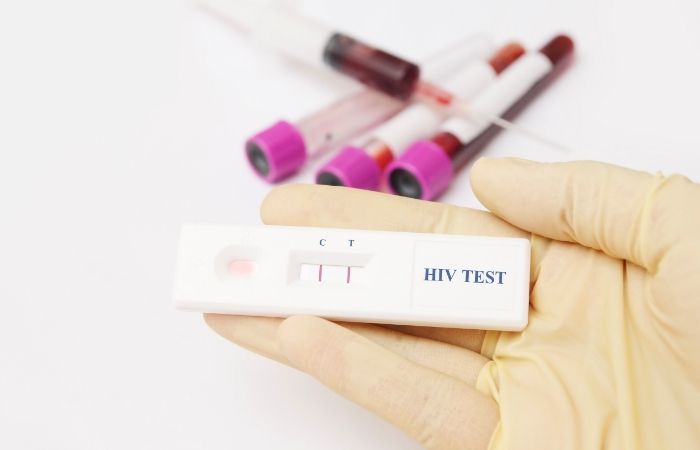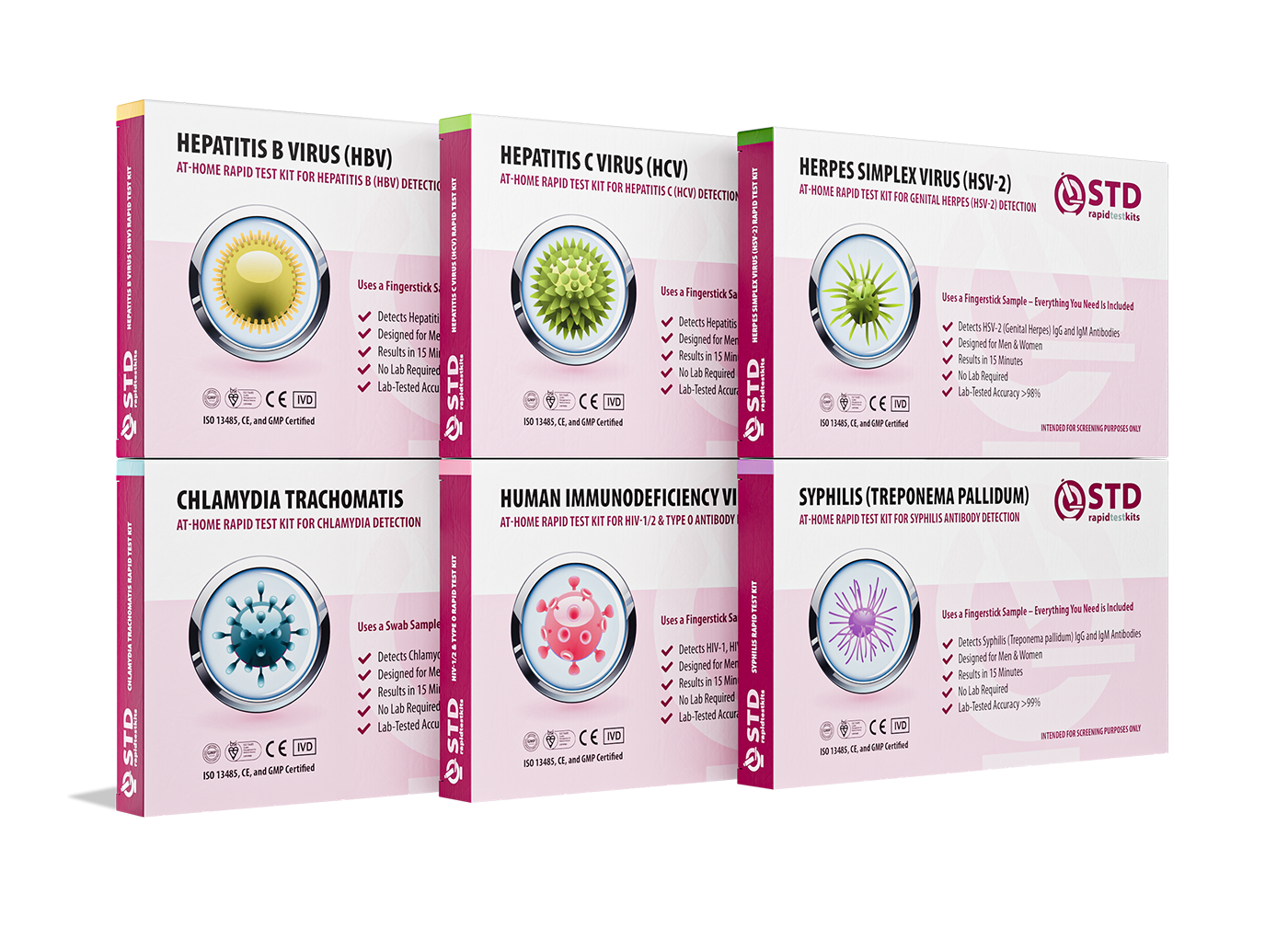The Growing Demand for Private STD Testing
Testing for Sexually Transmitted Infections: A Public Health Priority
Most people do not take sexually transmitted infections seriously, probably because they underestimate the real infection rates. The Center for Disease Control and Prevention estimates that each year, there are about 20 million new infections occurring in the United States. Some infections, if left untreated, may lead to serious health issues such as infertility, chronic pain, and worst of all, increase HIV risk. While some infections are mild or asymptomatic, others can lead to severe health complications.
By getting tested regularly, you are not only protecting yourself but also breaking the chain of infection. Infections like chlamydia and gonorrhea are sexually transmitted and lead to silent transmission since they usually do not have symptoms. These will be detected at an early stage through testing, thereby preventing their unconscious transmission to your partners.

Benefits of Regular Testing
It Can Save Lives If Diagnosed Early
Due to early diagnosis, appropriate treatment could be made well in advance; it is very much possible to evade the possible long-term health issues created by STDs. For example:
- Chlamydia and gonorrhea could be cured using medication provided if it's diagnosed well in advance.
- Early detection of syphilis allows the disease to be treated before irreversible damage has been caused.
It Cures the Infection and Negates the Chance of Passing the Infection to Others
This way, you will be able to take necessary precautions so that you can avoid getting others infected. This is important when one is infected with asymptomatic sexually transmitted diseases or STDs, which can only be diagnosed upon going for a routine test.
Mental State
Nothing gives quite as much confidence as knowing your sexual health is in good shape. Regular testing means you can enjoy your relationships without worries about what might be lurking around the corner.
Order Now $129.00 $343.00 Check Your STD Status in Minutes
Test at Home with Remedium
7-in-1 STD Test Kit




For all 7 tests
Checking Up on Sexually Transmitted Infections: What Are Your Options?
Testing Hospitals
If you need immediate medical attention or feel that you have the infection in its advanced stages, then hospitals are a good option since they have all the testing facilities. Most hospitals offer STD testing as part of their routine checkup and emergency medical services.
Programs That Are Sponsored by the Government
Several public health organizations create awareness and conduct tests for STDs. In addition, there are specific tests, which are available free of cost or at a subsidized cost through community health centers, mobile clinics, or on specific days reserved for testing. These facilities ensure assessment is available to everyone regardless of their economic backgrounds.
STD Test Kits for Use at Home
Because these at-home test kits for sexually transmitted diseases and infections are convenient and private, they have grown to be very popular. Using a kit will grant you the ease of collecting the samples in the comfort of your house, where you will then mail the samples to a lab for analysis. Typically, the results will arrive discreetly and often include some sort of telemedicine support should you get a positive result from your test kit.
For a complete solution, check out the Complete STD Home Test Kit Package or Combo STD Home Test Kits.
Medical Centers and Sexual Health Clinics
The most common place of STD testing is at a clinic or sexual health facility. Most of the time, they have very affordable testing and even free testing, especially for those with limited income. The main focus of institutions such as Planned Parenthood and other similar facilities is to offer sexual health services in a non-judgmental environment.
Emergency Rooms and Clinics
Visiting an urgent care center is a convenient option if you don't have a primary physician or if you need to get tested at odd hours. Most clinics will offer standard STD testing available, even though they are not sexually oriented facilities.

Who Should Get Tested for Sexually Transmitted Diseases?
Private Individuals Who Have More Than One Partner
Having multiple sexual partners increases the chances of acquiring and spreading sexually transmitted diseases. Regular testing facilitates early diagnosis and treatment. Early treatment, in turn, disrupts the infection chain.
Young Adults and Teen Girls and Boys
According to the Centers for Disease Control and Prevention, more than half of all new cases of sexually transmitted diseases, or STDs, occur among young people aged 15 to 24 years. Testing for this age group should be one of the priorities to maintain health in the formative years of their lives.
Men Who Have Sex with Men (MSM)
This is a population that is more prone to some of the sexually transmitted diseases, such as syphilis and HIV. The CDC recommends testing every three to six months for sexually active MSMs.
Pregnant Women
STD testing is essential during pregnancy in order to prevent issues that could have an impact on both the mother and the baby. As a result of not receiving treatment, conditions such as syphilis, HIV, or gonorrhea can have severe repercussions.
Couples Who Are Monogamous
Even couples who are committed to each other should consider getting tested regularly. For some STDs, there can be a long latent period, and it is possible for previous infections to have gone undiagnosed. Testing together can give a couple peace of mind, allowing them to feel confident they are both free of infection.
For more insight, read this guide on Which is Best for You: At-Home or In-Clinic STD Testing.
Others Showing Symptoms or with Risk Factors
People who are experiencing atypical symptoms, like abnormal discharges, sores, or pain when urinating, should seek medical help immediately.

Using Home Test Kits to Make Testing Easier
The use of at-home STD test kits offers a solution that is non-invasive, straightforward, and efficient. For guidance on selecting the right one, check How to Choose the Perfect At-Home STD Test Kit for Your Needs.
Testing Stigma: Misconceptions and Challenges Related to STDs
Stigma Surrounding Testing
Unfortunately, the topic of testing for STDs still carries a social stigma. Many are ashamed or judged, which, in turn, prevents them from reaching out for help.
Ease of Access and Location
Especially for people with heavy schedules, a visit to any clinic may appear to be burdensome and time-consuming. Alongside this, patients without adequate health insurance may find their treatment expensive and challenging to access.
Confusion Over Risk Levels
Some people have this misconception that they do not stand a chance of getting infected because they are in a monogamous relationship or because they are generally in good health. The truth is, STDs do not choose victims and can occur in any type of interpersonal relationship.
For more on addressing these stigmas, read Breaking the Stigma: Encouraging Open Conversations About STD Testing.
Order Now $119.00 $294.00 Check Your STD Status in Minutes
Test at Home with Remedium
6-in-1 STD Test Kit




For all 6 tests
The Statistics Speak for Themselves
Here are some key statistics underscoring the importance of regular STD testing:
- 1 in 5 Americans has an STD, according to the CDC.
- Individuals between the ages of 15 and 24 account for about half of all newly diagnosed cases of sexually transmitted diseases.
- According to research published by the World Health Organization (WHO), one million new sexually transmitted infections (STIs) are acquired every single day across the globe.
These numbers highlight the urgent need for large-scale testing. Detecting infections early makes them far easier to cure and prevents further transmission.
Professional Opinions and Case Studies
According to infectious disease specialist Dr. Lisa Reynolds:
"Routine testing is the cornerstone of sexually transmitted illness prevention. You could say we are fighting in the dark if we do not have it. At-home kits are a revolutionary innovation that make testing available to anyone who might otherwise avoid it owing to the stigma associated with it or the difficulties associated with it logistically."
Consider the example of Sarah. She was asymptomatic, but when she read about a new at-home STD test kit, she decided to take the test. She was shocked when the results showed that she had chlamydia; however, prompt treatment ensured that she faced no complications and also prevented her husband from inadvertently acquiring the infection.

Actionable Steps to Take: How to Incorporate Testing into Your Daily Life
Stick to a Schedule
At least once every year, get tested. If you have multiple partners or find yourself with a new partner, it’s best to do this every six months.
Talk to Your Partner
Openness about testing is a great way to build trust and create mutual safety.
Choose Kits for Use at Home
Selection of at-home test kits for STDs is the most advisable option due to reasons of convenience and privacy.
FAQs
1.- Why is regular testing for STDs something I should consider?
Regular testing allows diseases to be identified early. Timely treatment limits the chances of its spread to others.
2.- How often do I need to get tested for sexually transmitted infections?
It depends on your sexual activity. Testing should be done at least once a year or more often if you have multiple partners or are in a new relationship.
3.- Are there any reliable home test kits for sexually transmitted infections?
Yes, frequent-use STD testing kits available today for self-testing at home are as accurate as lab-tested results and serve as a convenient alternative.
4. For which STDs can test kits be used at home?
Most home testing kits can detect common STDs like chlamydia, gonorrhea, syphilis, and HIV. For specifics, refer to the details of the kit.
5.- What if I am asymptomatic and don’t have any symptoms of a sexually transmitted disease?
Most STDs are asymptomatic, meaning one can be infected and transmit the virus to others without showing signs.
6.- Is the result of testing for STDs confidential?
Yes, both home testing and in-clinic testing options are designed to protect your privacy and confidentiality.
7.- How long does it take to obtain results from an STD test kit that is used at home?
Depending on the type of test being performed, most kits deliver results within a few days, while others could provide results immediately.
8.- In the event that I test positive for a sexually transmitted disease (STD), what should I do?
Immediately seek the advice of a qualified medical expert to examine treatment options. Many at-home kits include telemedicine consultations.
9.- Would it be possible for me to utilize my health insurance to pay for STD testing?
Many clinics accept insurance for STD testing, but it’s always better to check with your provider. At-home test kits may not be covered.
10.- How might I bring up the topic of getting tested for STDs with my partner?
Approach the issue in a straightforward but sensitive manner. Emphasize that testing is a protective measure for both parties' health and trust.
Be Responsible for Your Health
Testing regularly is not only a personal responsibility but also an important part of maintaining the health of the general population. Opting for at-home STD test kits puts convenience and health at the forefront of your decision-making.
Take the first step toward a healthy future by placing your order for the at-home STD test kit now.
Sources
1.- The Importance of Early Detection: How STD Testing Saves Lives
2.- How to Prevent STDs: Best Practices and Strategies
3.- The Role of STD Testing in Preventative Health Care
4.- STIs and How to Prevent Them










